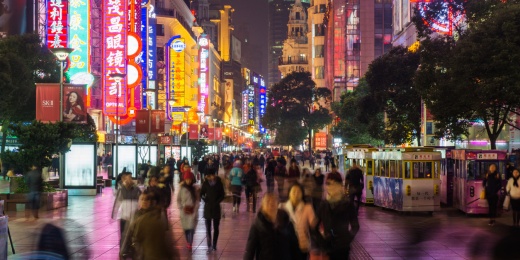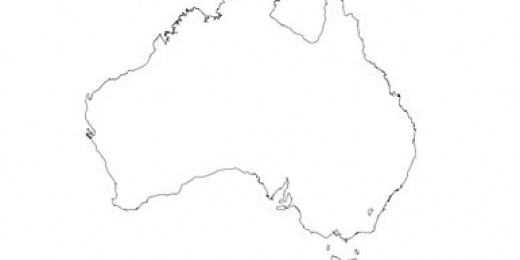The coronavirus overview and the impact on the economy in Asia.
Share

Background
The first cases of what was then a mystery illness were reported in December 2019 in Wuhan, the capital city of China’s Hubei province. Wuhan (the epicenter of the virus) has a population of 11 million which is larger than London or New York. The novel coronavirus “coronavirus” has spread rapidly, claiming around 60,000 confirmed illness and around 1,300 lives by February 13.
Worldwide Containment
As the confirmed infections and the death toll from the coronavirus continues to climb, governments and health organisations around the world are looking to contain the virus:
- Chinese authorities have locked down many cities in China’s Hubei province, and some international flights to China have been suspended;
- A growing number of countries around the world have carried out or continued planning the evacuation of their citizens from Wuhan. Thousands have returned home and been quarantined for at least 14 days on arrival to avoid any further contagion;
- At least 15 countries have restricted or barred entry to visitors from China and/or Hubei province, while more than 20 airlines are suspending or reducing flights to the country.
The impact in Asia (and in particular Hong Kong)
Some Asian cities are running out of masks. In Hong Kong people have been queuing overnight and reportedly paying more than five times the regular price. It is reported that while masks can be useful during the incubation period – infected people can spread the virus before experiencing any symptoms – it should be noted that commercially available surgical masks are not effective at preventing the transmission of coronavirus.
Authorities in Hong Kong have stepped up measures to prevent the spread of the coronavirus:
- Residents of Hubei province, of which Wuhan is the capital, are also being denied entry into Hong Kong, as are people who visited Hubei in the past 14 days, unless they are Hong Kong residents;
- Major tourist attractions and public facilities including museums and libraries are closed until further notice;
- Most of the city’s civil servants are being asked to work from home until at least February 23.
The number of people on Hong Kong streets has dropped significantly as the coronavirus outbreak has spread. Residents are also queuing for surgical masks and groceries amid fears of supply shortages.
Hong Kong’s finance chief has warned that the city’s economy is likely to continue contracting into 2020 as the coronavirus outbreak piles on additional challenges in a city already suffering from months of social unrest. Financial Secretary Paul Chan Mo-po also said the economic impact of the coronavirus outbreak could prove to be more severe than it was when the city was hit by severe acute respiratory syndrome (SARS) in 2003.
Writing on his official blog on Sunday, Financial Secretary Paul Chan Mo-po said he expected more people to lose their jobs, admitting that the effects of the health crisis now were more notable because of the city’s growing reliance on tourism and retail.
Citing recent figures, Chan made the following comments:
- Tourists from mainland China accounted for 78% of arrivals in Hong Kong, compared with 41% from 2002 just before the SARS outbreak.
- The tourism sector accounted for 32% of total service exports in Hong Kong (a rise of 11% from 17 years ago).
“We still have to see how things go, to determine the economic impact of the coronavirus outbreak, but it does not seem to be optimistic, and could possibly be much more severe than in 2003”.
Chan had previously issued a warning on his blog, saying the contagion and the ongoing social unrest were double whammies for the city, with the government already estimating its first fiscal shortfall in 15 years for 2019-20.
He had also estimated that Hong Kong’s budget deficit would not exceed 3 per cent of the gross domestic product, or about HK$80 billion, based on GDP of about HK$2 trillion for the financial year ending in March.
Chan added that:
- retail and catering businesses were the hardest hit in the last few months. Retail sales recorded their greatest ever drop of 24% year on year in the last quarter, while total revenues for the catering industry slid 6% in a first ever plunge since SARS.
- the latest unemployment rate, to be announced in a week, would very likely surpass the 3.3% in the last quarter.
Chan said he had not seen any adjustments in the financial sector with regard to areas such as bonds, foreign currencies and derivatives, and although there were fluctuations on the stock market, it was operating smoothly.
On the global economy, Chan expected that the coronavirus would bring larger headwinds to the economy of China, thus also affecting worldwide growth.
Hong Kong and Thailand are likely to suffer most from the coronavirus outbreak because of close their economic ties with China. A drop in Chinese tourist arrivals and imports, as well as supply chain disruptions are likely to weigh on regional economy.
“A collapse in tourism arrivals from China will be the first shock wave for the rest of the region,” said Gareth Leather, senior Asia economist at Capital Economics. “Factory closures in China will affect the rest of the region by disrupting regional supply chains.”
Hong Kong would likely be the most affected because of its status as a trade hub, its tight linkages to the Chinese economy and the sharp decline in tourism expenditure that is expected, UBS economist William Deng noted.
“Due to the risk of infection, domestic households significantly reduced such activities as dining out, shopping and entertainment,” Deng wrote in a recent note. He cut Hong Kong’s gross domestic product (GDP) growth forecast to minus 1.8 per cent for 2020, against his previous projection of a 0.5 per cent drop.
Hong Kong banks are to offer relief on mortgages, credit cards, corporate loans as the coronavirus outbreak weighs on the economy.
Our Hong Kong office principal Mr. Alan Cheung who in January 2020 was appointed as Liquidator of a Korean coffee chain with 5 shops in Hong Kong states that there will be more companies who will be in need of specialist advice many of which may not survive and will go into liquidation particularly in the food and beverage, retail and tourism industries.
Those companies at risk of financial problems are urged to contact their local Rodgers Reidy office as soon as possible to seek specialist advice.






